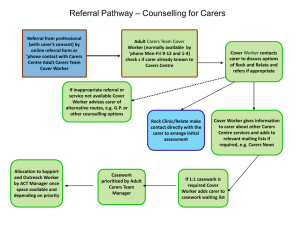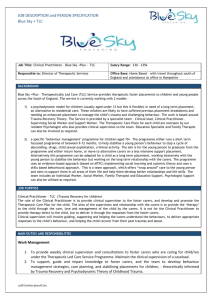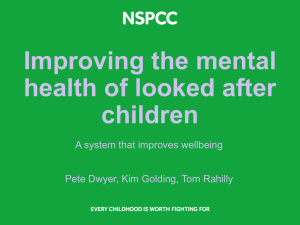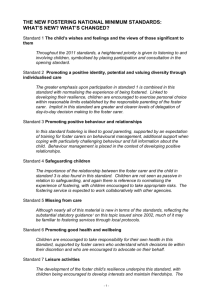DfE Topic 7 Leadership and supervision_SB030414
advertisement
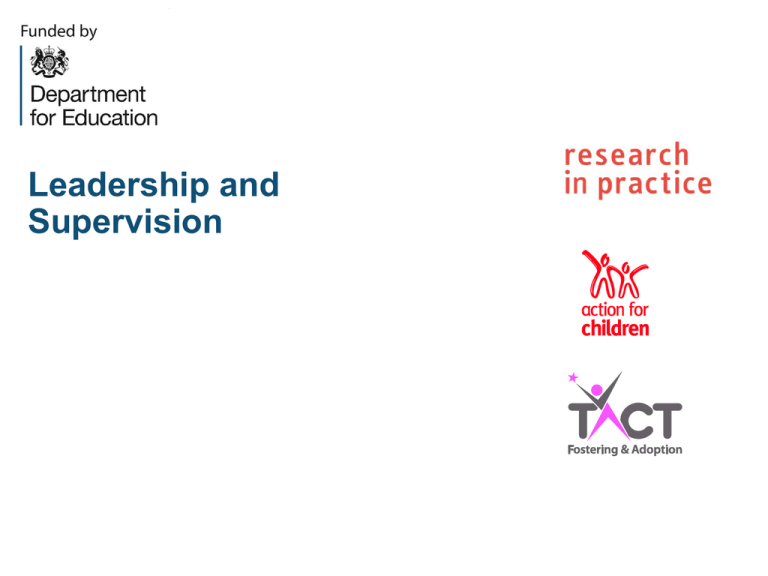
Leadership and Supervision Reflective Practice and Critical Analysis Supervision provides an opportunity for reflection, challenge and the testing out of hypotheses and ideas It enables the worker to critically analyse their actions with the goal of improving practice and outcomes for children Supervision of the carer provides an opportunity to reflect on their experience, perceptions of the child, support and development needs An effective framework to support analytical thinking are the Anchor principles (Brown, Moore, Turney 2012) 2 Reflections on Supervision Is it about challenging thinking or process compliance? Does it focus on questions about what needs to be done or enquiring questions about why and what? Are assumptions challenged and evidence interrogated? Is there scope for ideas to be tested? Does it explore the experience of the carers and their needs? 3 Why is good social work supervision important? Supervision provides critical appraisal of the assessment and planning process: • • • information gathered during assessments is often ambiguous Working with vulnerable children and families can have an emotional impact on social workers, which can affect how they reason and act It provides emotional and practical support, particularly after traumatic experiences to alleviate stress and ‘burn out’ 4 Supervision for foster carers Good supervision and support is key to retaining foster carers Foster carers who are under strain and not adequately supported provide less sensitive parenting, increasing the risk of placement breakdown Foster carer satisfaction is higher when: • • • • they receive monthly social worker visits lasting over an hour there is teamwork, communication and confidence with agency professionals professionals provide recognition, respect and encouragement to foster carers for their dedication and efforts they are heard and included in decisions being made about the child. (Geiger et al, 2013) Foster carers want support from social workers who: • • • • are available, responsive and able to listen treat the carer as a partner and do not patronise give honest information understand foster care and the needs of foster carers' families. 5 Supervision during crises and investigations Allegations of abuse against foster carers are upsetting for carers and can lead to children being removed from their care During an investigation foster carers need to be: • • • • • • treated fairly and honestly informed in writing as soon as possible about the nature of the allegation or concerns. given written information about the enquiry procedures that are being followed and scheduled timescales provided with ongoing support by their supervising social worker. given information about sources of independent advice and support. informed about all decisions as soon as possible. (Department for Children, Schools and Families, 2009) 6 Role of the social work manager As part of their supervision social work managers should be making sure that social workers are: • • • • • • • listening to what children want from the placement and helping to establish the relationship between carer and child making thorough plans around contact with the birth family ensuring that there is a choice of placements ensuring carers are fully informed and involved in any decisions making sure that children maintain existing networks of friends, community and education familiar with research that demonstrates that increased multiagency and multi-disciplinary support to placements improves foster carer satisfaction and reduces the level of placement disruption actively encouraging foster carers to take part in good quality training and development opportunities 7


